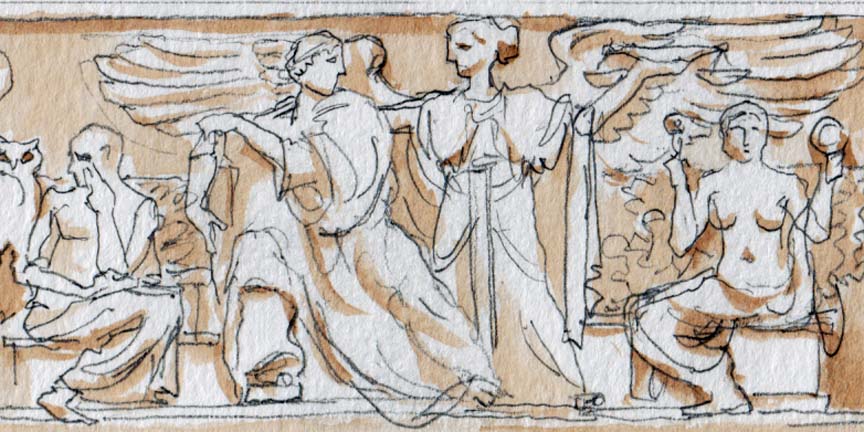Wednesday round-up

At Newsweek, Roger Parloff discusses the three cases involving President Donald Trump’s efforts to shield his financial records from subpoenas issued by a New York grand jury and three congressional committees that the court agreed last week to hear, observing that “the rulings below suggest that judges of different parties see these cases through radically different lenses.” At Truthdig, Bill Blum argues that these cases offer “Chief Justice Roberts and the other members of the nation’s highest judicial body” an opportunity “to demonstrate that there are no such things as ‘Trump judges.'”
Briefly:
- At Fox News, Julia Musto reports that in an interview yesterday on “Fox and Friends,” Justice Neil Gorsuch said “that the American people need to pay attention to the separation of powers and keep to the original meaning of the Constitution.”
- Maxine Wally reports at WWD that “Justice Ruth Bader Ginsburg shared some of her sprawling knowledge on the judicial system, women’s rights and President Trump on Monday night, when she was honored with the Berggruen Prize — an award typically reserved for philosophers.”
- At CNBC, Tucker Higgins reports that “[s]everal progressive organizations demanded Tuesday that Justice Brett Kavanaugh recuse himself from an upcoming Supreme Court case over the constitutionality of the Consumer Financial Protection Bureau, the post-crisis financial regulator, because he declared the bureau’s structure unconstitutional while he was a federal appeals court judge in Washington.”
- At Greenwire (subscription required), Niina Farah reports that “[t]he Supreme Court agreed late last week to take up a child sex abuse case that could also have implications for oil and gas development in eastern Oklahoma because it deals with questions around the boundaries of Indian Country.”
- Fix the Court offers a midterm report on the justices’ recusals, suggesting that the report’s findings “cast some doubt on the justices’ impartiality in certain areas and may foreshadow future ethics concerns.”
- At Balkinization, Marty Lederman remarks on how the briefing in a landmark 1926 Supreme Court case involving “whether Congress can give the Senate a role in the removal of an inferior officer” shows “how very different Supreme Court practice is today than it was a century ago.”
- At National Review, Rachel Bovard argues that “[i]f Google prevails” in Google v. Oracle America, a dispute over the copyright status of application programming interfaces, “the outcome will fundamentally change digital-copyright protections as we know them.” [Disclosure: Goldstein & Russell, P.C., whose attorneys contribute to this blog in various capacities, is among the counsel to the petitioner in this case.]
- In an op-ed for the Montana Standard, Brian Yablonski and Jonathan Wood weigh in on In Atlantic Richfield Co. v. Christian, in which the court will decide whether federal law preempts state-law claims for cleanup of hazardous waste beyond what the EPA has ordered, arguing that “the Supreme Court should protect the landowners’ property rights and allow the lawsuit to move forward in Montana courts.”
- In an op-ed for the New York Post, Rich Lowry maintains that by “declining to take up an appeal of a ruling by the Court of Appeals for the Ninth Circuit, covering the western United States, that homeless encampments are a de facto constitutional right,” “[t]he Supreme Court just ensured that the nation’s homelessness crisis will continue.”
We rely on our readers to send us links for our round-up. If you have or know of a recent (published in the last two or three days) article, post, podcast or op-ed relating to the Supreme Court that you’d like us to consider for inclusion in the round-up, please send it to roundup [at] scotusblog.com. Thank you!
Posted in Round-up
